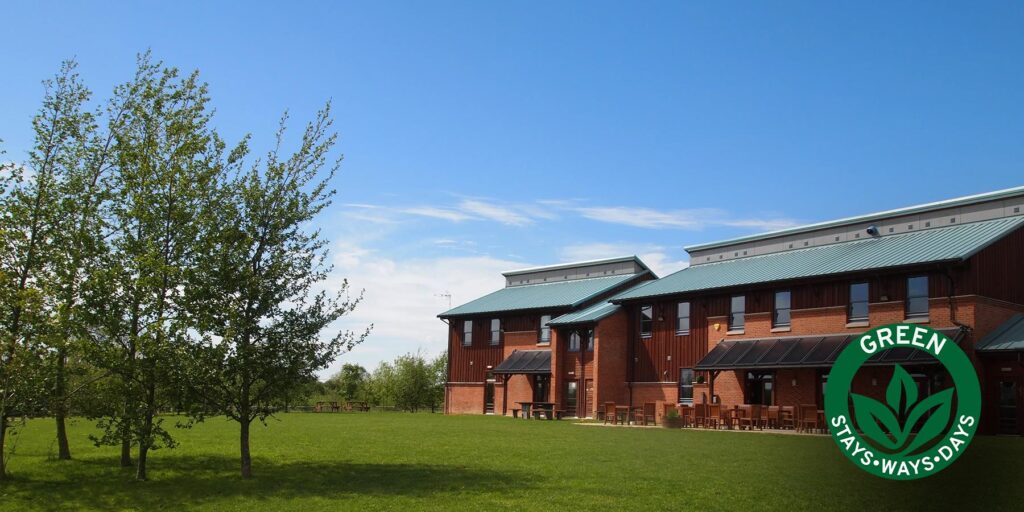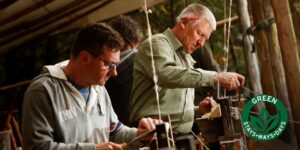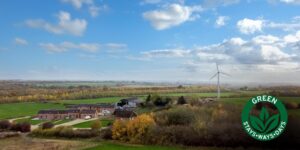YHA National Forest

YHA National Forest – Sustainable Education For The Next Generation
A place to stay, a place to explore and a place to inspire, the YHA National Forest allows young people to experience the outdoor world while learning about sustainability. And the organisation and location has that sustainability at its heart.
The national Youth Hostel Association is committed to “making a positive difference for people and planet”. Their aim is to actively connect people to the outdoors, to heritage and culture, whether in the countryside, by the coast or in towns and cities.
The 90 year history of the organisation is rooted in regenerative tourism and education (before that even became a thing). Their programmes encourage more than a million young people per year to become the environmentalists of the future by connecting them to nature and driving them to protect and advocate for nature.
With support from the Government’s Green Recovery Challenge Fund, the Youth Hostel Association developed, led and successfully ran the Generation Green programme connecting over 115,000 young people to nature environmental education. At the YHA National Forest, the young people are able to enjoy the outdoor pursuits of Conkers Discovery and Waterside Centres, including Archery, Pedalos/Canoeing, Barefoot walking, activity trails and high ropes, all outside activities which are sustainably maintained.
Nationally the Youth Hostel Association has introduced a number of positive changes. This includes new cleaning technology which reduces chemical use by 43%, an 85% reduction in paper towel use by installing hand dryers, removing 220,000 plastic yoghurt pots per year by making their own yoghurt, supporting local sustainability projects like tree and hedgerow planting and working with local community groups to reuse and recycle unused food and furniture.
At the National Forest site they have also installed solar panels to heat the hot water in the guest bedrooms, added low energy LED lighting throughout, installed a water refill point to remove the need for “single use” plastics and added vegan options on their menus. While cars and public transport are necessary aspects of an accessible Youth Hostel Association, especially in a rural area, ‘active travel’ – walking and cycling – is a core part of their culture and approach, but the installations of EV charging points also helps!
At the YHA National Forest the team have partnered with a sustainable packaging organisation based in Hinckley. Their ‘circular packaging’ model is an alternative to the take, make and discard mindset. This reduces waste and pollution, keeps materials in use for longer, and helps to regenerate natural systems. This is not the only local partnership, with staff at the Hostel engaging with local volunteer groups including woodland management at Hicks Lodge Cycle Centre, Public Footpath Litter Picking and various National Forest projects including the Timber Festival and woodland management.
They have also designed and built office furniture from packaging cardboard, ranging from stools, sets of drawers, bookcases and several artistic design tree structures to show off the hostel and emphasize their commitment to nature and the National Forest. The next exciting phase is outdoor café furniture made from recycled pallets!
Heidi Rutley (YHA National Forest Manager) commented “We recognise that the risks to the environment and to the world and its population are a real and immediate threat. As an organisation that connects people to nature, we will set a strong example in how we use our assets and through our work with partners we will help to improve the environment.
“Our mission is to enrich the lives of all, especially young people, by providing brilliant hostel stays and experiences that improve physical health, mental wellbeing and life skills.
“The YHA is committed to achieving net zero emissions no later than 2050. We will develop meaningful and realistic targets which allow us to measure progress, building on our Carbon Reduction Plan, which sets out how we intend to reduce our emissions by a further 26% by 2027.”
We recognise that the risks to the environment and to the world and its population are a real and immediate threat.
Heidi Rutley (YHA National Forest Manager)




